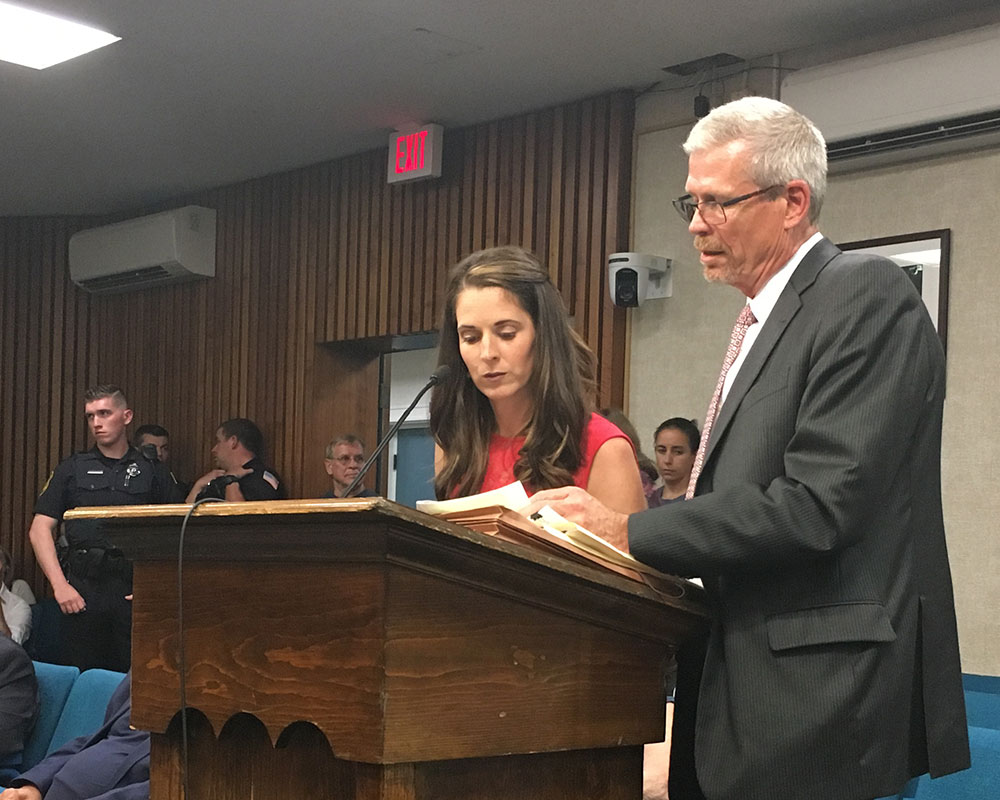The City of Haverhill says the owner of a cannabis retail shop is trying to do through the media what a Superior Court judge has so far refused.
Haverhill responded to a letter from Stem Haverhill, dated a week ago, that asks the city to put “impact fees” into a separate account and pay interest. The city does agree, however, with owner Caroline Pineau’s contention that it is working separately with other adult-use cannabis shops because the other three are not suing the city. Stem filed suit in Essex County Superior Court in 2021, saying it should not pay impact fees until the city proves the added cost of hosting cannabis businesses.
“Shortly after filing the lawsuit, Stem filed an emergency motion seeking a hearing on a preliminary injunction to be relieved of the obligation to make community impact payments, or, to make those payments to an escrow account. The Court held a hearing as requested and denied the request for a preliminary injunction, which obligates Stem to continuing making these payments to the city as required by the contract,” the city said in a statement.
In a Saturday press release, Stem owner Caroline Pineau said all three years of her company’s impact fees—totaling $887,488—should be deposited in an interest-bearing escrow account. In addition, Pineau said her letter asks that future payments be suspended “until a clear and equitable payment policy is in place.” She added, “I find it disturbing that the city is negotiating on a store-by-store basis rather than establishing an across-the-board policy that treats all operators fairly and equally.”
In its statement, the city explained its rationale.
“The other three cannabis retailers have not filed suit or joined in Stem’s suit against the city. Clearly, Stem is in a different position from the other retailers. We are having discussions with the other retailers regarding their obligations and we expect them all to fully comply with the HCAs (host community agreements) they agreed to in order to conduct business, as we do with Stem.”
Two years ago, Attorney Thomas K. MacMillan, representing Stem, agreed in court that Stem consented to the city’s terms when it negotiated its host community agreement. However, he argued, negotiations typically mean “give and take,” but the city held the upper hand since host agreements are required before cannabis shops may open.
“There wasn’t any room to maneuver. There wasn’t any room to negotiate,” MacMillan said.
City officials also report being perplexed by an “unsolicited” proposal for a new agreement that Stem sent in May.
“We found this somewhat puzzling as this proposal did not come in the context of any ongoing negotiations, and arrived without any indication as to whether it was intended to reinitiate prior negotiations,” officials wrote. The city added, Stem’s media outbursts of “one-sided positions to date have not been conducive to purposeful negotiations which could lead to a joint resolution. Nonetheless, our offer to engage in meaningful negotiations as to the lawsuit stands.”
Impact fees, negotiated in host agreements between communities and retailers, are separate from optional local excise taxes of up to 3% on the retail sale of recreational cannabis. State law governing host community agreements also changed after the city and Stem reached their initial accord.
Stem’s suit against Haverhill is scheduled for trial next February in Essex County Superior Court.

